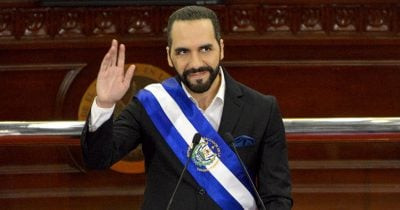
- El Salvador reached a $1.4 billion agreement with IMF making Bitcoin acceptance voluntary.
- The deal includes fiscal measures and expects $3.5 billion additional financing from World Bank and regional banks.
El Salvador has secured a $1.4 billion agreement with the International Monetary Fund, marking a shift in the country’s crypto policies by making Bitcoin acceptance voluntary.
The agreement, which requires IMF Executive Board approval, includes fiscal consolidation measures targeting a 3.5% improvement in the primary balance over three years.
El Salvador’s public debt, which reached 85% of GDP in 2024, is expected to decrease under the program.
The deal anticipates additional financing of $3.5 billion from the World Bank and regional development banks to support the country’s economic reforms.
As part of the agreement, El Salvador will reduce Bitcoin’s role in its economy.
The government plans to make private sector adoption of Bitcoin voluntary while limiting public sector involvement.
Taxes will only be accepted in US dollars, further scaling back Bitcoin’s official use.
Officials will also gradually wind down the state-backed Chivo e-wallet operations and restrict Bitcoin-related transactions.
The announcement coincides with Bitcoin’s price decline to just above $100,000, following its recent all-time high of $108,000, as markets react to the Federal Reserve’s hawkish stance on interest rates.
El Salvador’s economy shows resilience amid these changes, benefiting from strong remittances, growing tourism, and improved security conditions.
